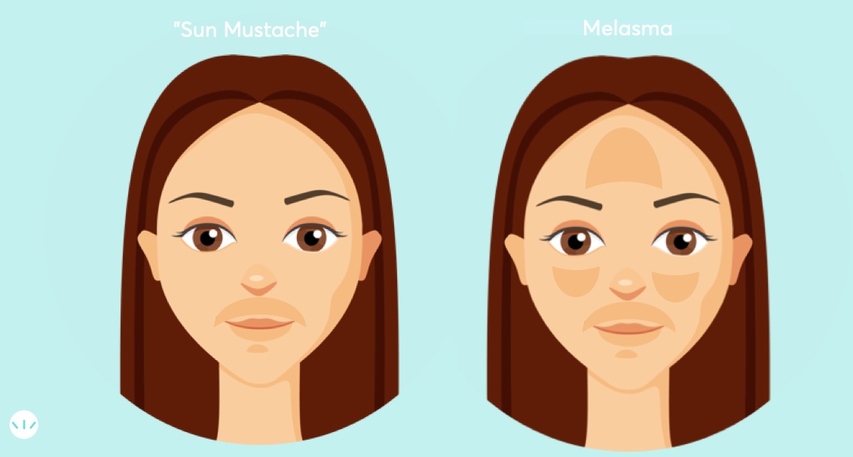How to get rid of "Sun Mustache"?

Dealing with Hyperpigmentation on the Upper Lip: Causes, Prevention, and Treatment
One of the most common skin concerns among young women is darkening of the skin above the upper lip, often called a "sun mustache." The medical term for this condition is chloasma or melasma. This type of hyperpigmentation is typically caused by a mix of genetic tendencies, hormonal fluctuations, sun exposure, and heat. The use of wax or depilatory creams in the upper lip area is also a common trigger for darkening.
Can Hormones Cause Skin Darkening?
Yes, hormones play a significant role in hyperpigmentation. Melasma is particularly common during pregnancy and for those taking birth control pills, both of which increase estrogen levels. Elevated estrogen can stimulate melanocytes (skin pigment cells) to produce more melanin, resulting in darkened areas around the mouth (chloasma) or on the cheeks and forehead (melasma).
Preventing a "Sun Mustache"
-
Minimize Irritation: Reducing skin irritation is key to preventing hyperpigmentation. Avoid using lasers, wax, or depilatory creams on the upper lip area if you’re prone to darkening.
-
Sun Protection: Daily use of a broad-spectrum UVA/UVB sunscreen is essential. The upper lip area is highly susceptible to sun exposure and can easily lose coverage due to drinking, eating, sweating, or rubbing. To protect against darkening, use a water-resistant sunscreen and reapply every 2–3 hours.
Fading Dark Spots on the Upper Lip
The best approach to fading dark spots above the upper lip is to combine preventive measures with targeted treatments:
- Use a Gentle Cleanser: A mild cleanser with BHA (salicylic acid) can help to gently exfoliate and clear pores.
- Dark Spot Remover: Arbutin, a natural skin-brightening agent, is one of the most effective over-the-counter ingredients for fading dark spots. Products like MDacne Advanced Dark Spot Remover, which contains arbutin, retinol, and alpha and beta hydroxy acids, offer a safe and effective way to lighten hyperpigmented areas for all skin types and tones.
Do Face Masks Worsen Hyperpigmentation?
Wearing COVID face masks outdoors can theoretically reduce sun exposure to the upper lip, potentially helping with a "sun mustache." However, single-use plastic masks can increase heat and humidity, which can worsen acne and hyperpigmentation. Consider using soft cotton masks infused with silver and copper ions, which help absorb sweat, reduce friction, and decrease bacterial and fungal buildup on the skin, potentially helping prevent darkening over the upper lip.
How Long Does Melasma Last?
The duration of melasma varies. For some, discoloration fades within 3–6 months, while for others, it may take longer. If skin darkening persists for more than six months, consult a healthcare provider to rule out underlying conditions like hormonal imbalances.
To find the right acne treatments for your unique skin, take the free skin assessment by clicking here.



